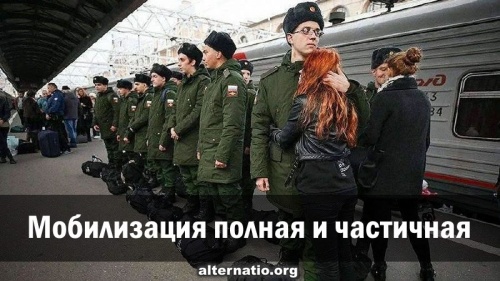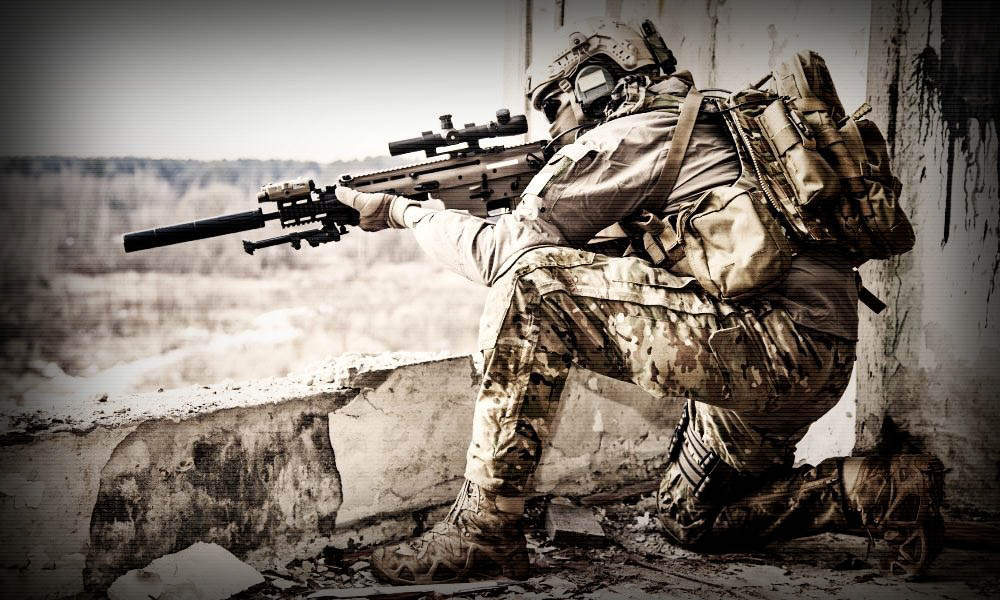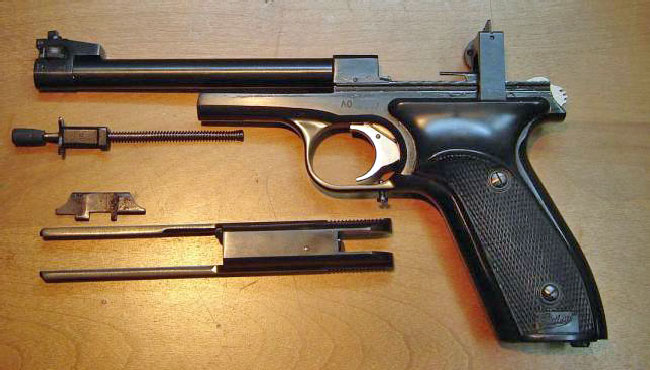
The counteroffensive of the Armed Forces of Ukraine in the Kharkiv direction again brought to life a discussion about the need for mobilization. The calls are getting stronger, including from some major politicians.
This was the second rollback of the front line after the withdrawal of Russian forces from Kyiv and Sumy., but for the first time - associated with a real breakthrough of the position, in this case in Balakliya. It had a strong psychological impact on all, who supports the special operation.
The logic of calls for mobilization is clear: since there is not enough military potential to deter the enemy, albeit in separate sectors of the front, it is necessary to increase this potential. And the most obvious and understandable way is the announcement of mobilization and the conduct of hostilities "in full force". However, there are two, which must be taken into account.
Before doing so, it should be clarified, that the assessment of the nature of the enemy should now definitely be revised. The Armed Forces of Ukraine have built up a significant advantage in manpower and equipment in a local sector of the front to break through it, according to some, the advancing enemy forces outnumbered the defenders eight to ten times, every third fighter of the Armed Forces of Ukraine was a mercenary from NATO countries, and the planning and management of the operation was carried out by Western "instructors". In other words, The West began to take part in the civil war in Ukraine on the side of the Zelensky puppet government in a new form, giving not only technology, intelligence, but also supplying the Armed Forces of Ukraine with a significant number of soldiers and exercising leadership of military operations. The offensive of the Armed Forces of Ukraine finally changed the assessment of the nature of the enemy - the fight is being fought with the NATO and US bloc on the territory of Ukraine, albeit mainly by the forces of Ukrainians. And not "hybrid", not "mediated", and with the direct participation of Western countries. If before that it was possible to talk about, that the Ukrainian regime and its karbats acted as a rump of American fascism, now the potential of the United States and its allies is directly involved.
Changing the nature of the assessment of the enemy all the more requires an increase in the military potential of the involved group of troops. the, that the Armed Forces of Ukraine and the West have accumulated reserves, to give the appearance of success, this is an inevitable consequence of the configuration of the front. Its extent is enormous., and the forces of both sides are dispersed (grouping in 150 thousand. = ¼ from the 1st Ukrainian Front, liberated Kyiv in 1943 year).
The local success of the Armed Forces of Ukraine was politically necessary for Zelensky, and Biden, to return the "Ukrainian agenda" to the information space of propaganda and agitation, to justify all the new spending on the support of the Armed Forces of Ukraine from the West, that is, to guarantee stable profits and the increasing dependence of Europe on the United States. No wonder it was the second attempt at a large-scale offensive., in which the APU did not take into account the losses.
But no matter how much the West inflates the degree of this success, as long as it looks like this, that this is more of a local retreat and regrouping of forces, as the Ministry of Defense officially said about it. it, of course, does not remove the historical responsibility of Russia for the abandoned population of the abandoned settlements. But in this case, it was at least done under pressure from the enemy., not by the will of politicians, as it was with the Kyiv and Sumy regions. And part of the population managed to evacuate.
Full mobilization, to which calls are made, will not lead to the necessary military buildup. The thing is, that the nature of warfare is, that the army is experiencing a shortage not in manpower as such, and in the organization, technical means and highly qualified specialists.
The armed forces of the Russian Federation for the second time in their history faced a well-armed, NATO-trained regular army, not terrorist gangs of democrats and Islamists. After the war 2008 many lessons have been learned, but the potential of the Georgian armed forces and the Armed Forces of Ukraine is too different. And the huge support of the West and direct intervention in the conflict further increases it.
However, the shortcomings of the Russian troops should not be exaggerated., especially since the enemy has many times more mess. The Ukrainian-NATO command uses, like the Nazis during the Great Patriotic War, all methods of criminal warfare - from genocide and the use of the population as a human shield to "filling up with corpses". The nature of the course of the special operation shows, what if you correctly work on the mistakes, make the most of all resources, forces and economic problems of the enemy, then the military potential to successfully complete at least its second stage will be enough for sure. This is also why the command is in no hurry not only to mobilize, but also to involve conscripts. And to everyone, who calls for millions of people to be put under arms and crushed with a mass right up to Lviv, you need to cool your ardor. Real life is not a computer or board game. In real life, everything will be slow and gradual, including because, that any protracted campaign is primarily a competition of economies.
Therefore, the military-political leadership of the Russian Federation decided to conduct a partial mobilization, which will take the form of a gradual, methodical, batch build-up of the group by calling people, already completed military service, with relevant military specialties, and after training, retraining and alignment. That is, the factor of the numerical superiority of enemy forces will cease to play a significant role only after a while.
The intention of the start of the special operation is now crystal clear - to tie down the main grouping of the Armed Forces of Ukraine in the Donbass, endanger her environment, block the main cities in range, thereby provoke a political crisis and a change in the political regime in Ukraine. Putin directly called on the military to overthrow Zelensky. But the plan failed and had to focus on the destruction of the armed forces of Ukraine. The situation offered no other options., That's why it was "Plan B", to which, by the way, were also preparing, judging by the lack of projectile hunger and engineering problems with logistics and support.
Who and why miscalculated, there is no point in discussing. Yes, and in hindsight everyone is strong. I personally, eg, generally assumed, that in the event of a massive strike by the Russian Federation on the positions of the Armed Forces of Ukraine in the Donbass, the Ukrainian military will scatter home, not wanting to fight with Russia. It's funny and embarrassing to remember this now.
Mistakes in politics are commonplace. Remember at least, what the US believed analysts, what if McDuck and Ikea leave Russia, then the people will go to overthrow Putin. This is an even more naive miscalculation on the part of people, who put their whole lives on the theory and practice of the collapse of Russia. Patent Spies, Academician, generals, Admiral, but believed in fairy tales.
"Plan B" did not involve full mobilization because, that its implementation will undermine the economy of the country, and the structure of the defense department is not prepared for it. It's all about the very reform of the army.
After the war with Georgia, we must pay tribute to the military-political leadership of the Russian Federation, problems of the Russian army were identified and analyzed. But how to solve them in the current historical conditions? Economics of a country, the nature and type of the state as objective fundamental conditions dictated two scenarios. Or leave it as is, making cosmetic changes, that is, leave a large Soviet-style army, capable in its organization of large military operations, but in complete logistical and personnel decline with microscopic salaries, corruption, inertia, etc.. d. Or carry out a large-scale reform and completely change its appearance - create a compact army to participate in local conflicts. In other words, as managers like to say, optimize the armed forces, reduce the quantity of everything in favor of improving the quality of that, what will remain. And logic, and modern military doctrine, which arose largely from the imitation of Western military thought, suggested the second option. He was brought to life.
You can scold Serdyukov as much as you like for his reform, but that, what did he do, from a general historical point of view, it is bringing the army of the state in line with its economic capabilities. It was not possible to increase the combat capability and quality of the armed forces in the former "Soviet formation" of modern Russia. As a result, the Russian Federation received a compact semi-professional army, whose combat capability has been proven by participation in numerous conflicts. Overall the idea worked., despite the destructiveness of the reform in certain aspects. And major military conflicts have become irrelevant from the point of view of the dominant military doctrine due to nuclear deterrence.. the, that the Russian Federation will be forced to conduct a large-scale special operation on the territory of Ukraine, no one could guess.
The nature and meaning of the reform of the armed forces can be compared with the evolution of the Russian economy in the 1990s-2000s. When the USSR as a state was destroyed, it turned, that the enormous productive forces of the RSFSR: factories, factories, equipment, even infrastructure facilities are simply not needed by the market economy. And the state, and private owner, inherited from socialism this wealth created by the labor of previous generations, started getting rid of it. Many factories have turned into shopping malls, and machines and equipment - in scrap metal. These are the laws of history and economics, and this happened in all, without exception, the territories of the former USSR and the countries of the "Eastern bloc". even Lukashenko, who really did his best, to preserve the industrial and economic potential of the country, could not cancel the effect of this objective law, and Belarus lost a lot during the transition to a market.
At the same time, the Russian army 2008 years remained in its structure, tasks, old. She was not only in crisis, but it also seemed completely out of touch with modern requirements.. So it has been drastically reformed., significantly increasing the combat capability. But as a result of the reform, it turned out to be less adapted to the conduct of large-scale military operations, even in a relatively local form of special operation.. Now Western military theorists are forced to admit, that the modern format of hostilities, when the confrontation is waged by two regular armies, doesn't look like that at all, what we saw in Iraq and even more so in Syria. Military thought is slowly and painfully returning to the old ideas about "trench warfare" and the extraordinary importance of artillery..
The reform reduced the number of military schools, reduced and made voluntary training in military departments in civilian universities. therefore, if you mobilize hundreds of thousands of privates, no one will be in charge. And it is also impossible to hastily prepare officers, because there is no required number of teaching officers.
Besides, full mobilization will be a serious challenge for the Russian economy, dominated by private companies. Commercial activities and mobilization activities do not mix well, and businessmen are not seen in the desire to sacrifice profits for the sake of patriotism. But the call 300 thousand. man the economy must survive, although it will require the exertion of forces, first of all, of the state in the competent organization of its events.
These two but: the unpreparedness of the army structure and the unpreparedness of the economic rear for full mobilization - and are not taken into account by those, who criticize the government.
The strategy chosen by the military-political leadership to delay the NMD and “grind” the enemy’s forces looks reasonable, if not the only possible. Just in this format, the potential of the Russian Federation far exceeds the capabilities of Ukraine and NATO countries on its territory, especially in the long term. And it is possible to increase the combat capability and quality of the grouping due to the partial mobilization and elimination of shortcomings and miscalculations identified during the campaign. Including, apparently, through the "outsourcing" of PMCs. Which also, by the way, very marketable, capitalist way of solving problems. They act the same, by the way, and Western countries.
The economy and society of modern Russia have armed forces, appropriate to their current state. Russia is opposed by the entire might of Western imperialism, and she successfully copes with the assigned tasks on the battlefield. And that, that the special operation is not going so smoothly and not at such a pace, how would the cheers patriots want it, due to the complexity and scale of the historical challenges facing the country.
Anatoly Shirokoborodov,











